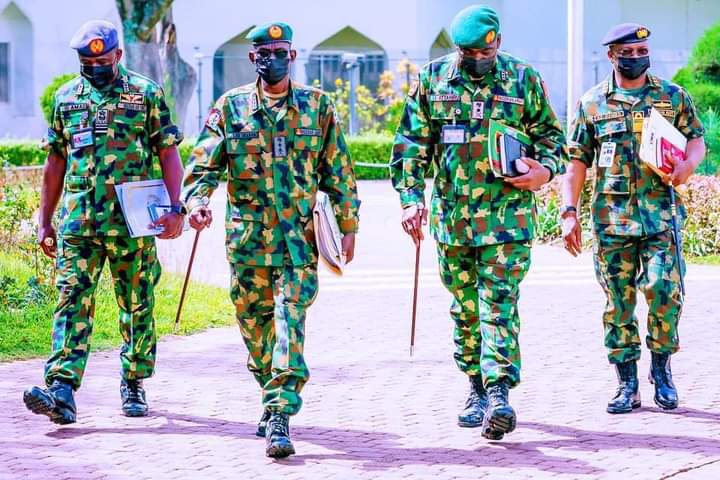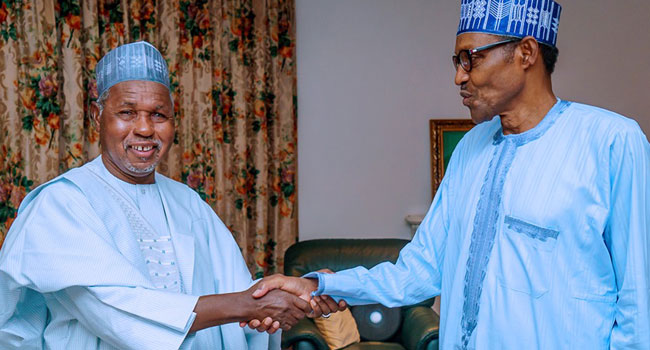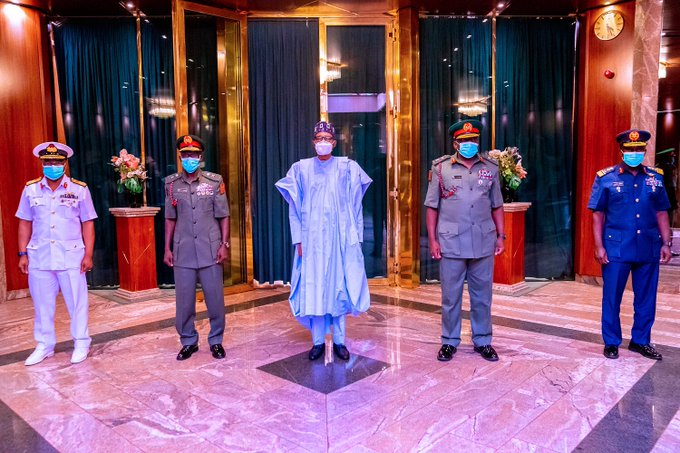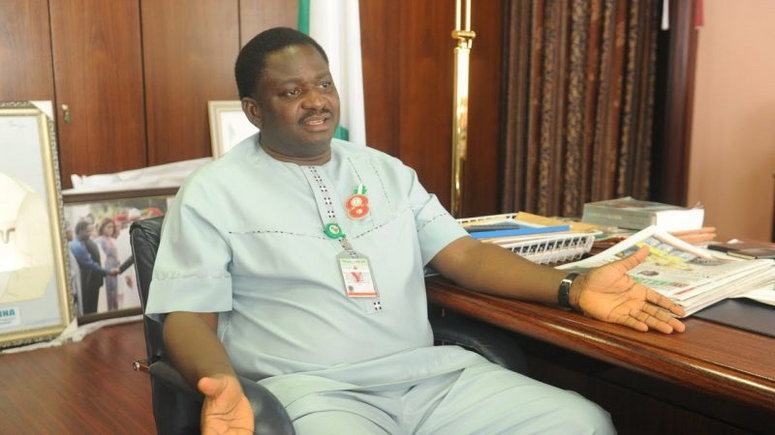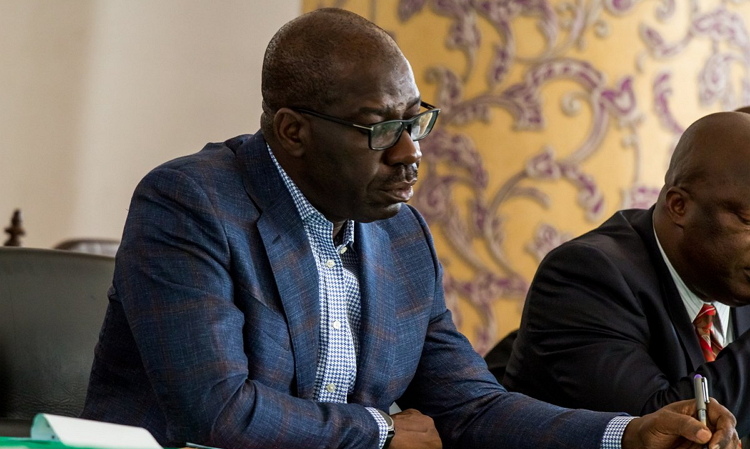By Ezomon Ehichioya
Many Nigerians were nonplus when President Muhammadu Buhari promised that he would soon effect changes in the security system of the country. They’d heard that song over and over!
Particularly lately, the president would express dissatisfaction and even displeasure with the performance of the service chiefs, and the people would expect him to do the needful, but to no avail.
So, pledging changes in the “security architecture” of Nigeria didn’t move the needle of public perception of the president as one in love with the security chiefs even when they’d let down the Commander-in-Chief time and time again. Hence, reactions to the “shake-up” in the chain of command were somehow muted.
Critics have different reasons for rooting for changes of the service chiefs: Some want a change of guards for the sake of having a new set of hierarchy of command. Some want to have their own people at the helms. Others want a clean sweep of an alleged derailed and compromised security leadership.
Yet, to the advocates that’d shouted themselves hoarse for the changes, injecting new blood into the system is a good omen that could turn around the messy security situation in the country.
No matter how late in the day the changes had come, it’s better than retaining the old guards that appeared overwhelmed in their nearly six years in the saddle of managing the nation’s security.
But to critics, sacking the security chiefs isn’t just too little too late, but comes at a time of near total breakdown of law and order, as terrorists, bandits, kidnappers, murderers, ritualists and other commercial criminal elements run riot across the country.
Indeed, critics have alleged that these well-organised and armed non-state actors have formed a parallel power bloc capable of, or if not already countermanding the government of the day.
In that respect, changing the service chiefs would amount to putting old wine in a new bottle, with the taste remaining the same. Rather, they argue it’s the government that should change its ways of looking at the overall security condition in the country.
The nationwide security matters have prompted allegation of government connivance, or outright enablement of killer Fulani herdsmen forcefully taking over indigenous lands of their host communities or government reserved forests.
It got to a head that Governor Rotimi Akeredolu of Ondo State ordered all Fulani herders to vacate the state’s forests, while in Oyo State, one Sunday Igboho gave a similar quit notice for all Fulani herders to leave the state.
Igboho and his group were to execute the ultimatum, leading to the sacking of the head of the Fulani and many of his subjects from their homesteads, while Igboho’s property was also torched in reprisal.
Rather than go into the root of the problem, the presidency and other interest groups, such as the Miyetti Allah Cattle Breeders Association of Nigeria (MACBAN) and the Arewa Consultative Forum (ACF) jumped into the fray, condemning both Governor Akeredolu and Mr Igboho’s reported “unconstitutional” acts.
Conversely, prominent Yoruba personalities, and the umbrella Yoruba socio-cultural organisation, Afenifere, came to the rescue of their traduced Governor Akeredolu and Mr Igboho, who the Inspector-General of Police, Muhammed Adamu, ordered arrested.
Agreed that the amended 1999 Constitution guarantees Nigerians the right to live and own land and property in any parts of the country. But the constitution doesn’t sanction forceful dispossessing of indigenous peoples of their ancestral lands or local or state government reserved lands.
It’s exactly what the armed herders are doing! And they’re backed by Miyetti Allah, which, apparently emboldened by official reaction, has declared that “all lands in Nigeria belong to the Fulani.”
It’s no surprise that individuals and groups have turned the heat on the government. Besides the opposition elements that see real or imagined issues to lampoon the government about, concerned Nigerians and groups have had cause to alert the government on the nation’s worsening security.
They include, but not limited to: The Sultan of Sokoto, Alhaji Sa’ad Muhammad Abubakar III; The Alafin of Oyo, Oba Lamidi Olayiwola Adeyemi III; former President Olusegun Obasanjo; former Vice President Atiku Abubakar; former Defence Minister, Gen. T.Y Danjuma; and The Bishop of Sokoto Archdiocese, Rev. Fr Matthew Hassan Kukah.
Leaders and/or ethnic nationalities include: The Afenifere; Ohanaeze Ndigbo; Pan-Niger Delta Elders Forum (PANDEF); ACF; The Middle Belt Forum; and Southern and Middle Belt Elders Forum. And both Christian and Islamic organisations and denominations’ leaders have added their voices to the security concerns in the country.
Some of the “security bombshells” were delivered by Bishop Kukah, Gen. Danjuma and Chief Obasanjo, with Kukah’s reportedly hinting of a “coup” against the Buhari government he’s accused of playing the ethnic and religious cards.
Whereas the Danjuma and Obasanjo messages are not new, but seem to be regurgitated on social media at intervals, they called on the indigenous peoples to rise and defend their ancestral lands from the invading Fulani herders allegedly backed by the government.
A new but not altogether surprising voice to the security debate is that of the Alaafin of Oyo, Oba Adeyemi III, who declared himself as “a major stakeholder” in the administration of President Buhari.
Though his “Open Letter” to Buhari wasn’t as caustic as others’ messages, it’s no less a premonition of what to come: The people of the South-West would resort to self-help should the government fail to rein in the marauding Fulani herders.
Thus, from North to South, all fingers point to an invading army of foreign Fulani herders, who ride on the back of local collaborators, to dispossess indigenous peoples of their lands, and levy, kidnap, rape and kill them at will.
And when the people have had enough, and given the infiltrators the marching order, the federal government, which should be scandalised by such foreign effrontery, had expeditiously come to the defence of the nation’s supposed common enemies.
Of course, the government views some of the observations and admonitions from individuals and groups as provocative both in intents and delivery, such that accusations and counter-accusations often subsumed what ought to be taken in good faith and run with it for the protection and betterment of the society.
The foregoing clearly indicates that changing of the service chiefs, which’s overdue on account of their declining productivity, is a sideshow to the actual security problems confronting us.
The solution, therefore, is in the government itself. Is it for the people or for the killer Fulani herders? Is the government for acquiring of land legitimately or dispossessing the land owners by force?
Finally, common sense appears to prevail, with the South-West Governors and Miyetti Allah meeting in Akure, Ondo State, and President Buhari, Governor Akeredolu and Governor Seyi Makinde of Oyo State and the Ooni of Ife, Oba Adeyeye Ogunwusi Ojaja II, also parleying at the Presidential Villa, Abuja, to smoothen the rough edges of the security conundrum that could ignite a civil war, as warned by the Arewa Consultative Forum. Let’s jaw jaw jare!
* Mr Ezomon, Journalist and Media Consultant, writes from Lagos, Nigeria.
